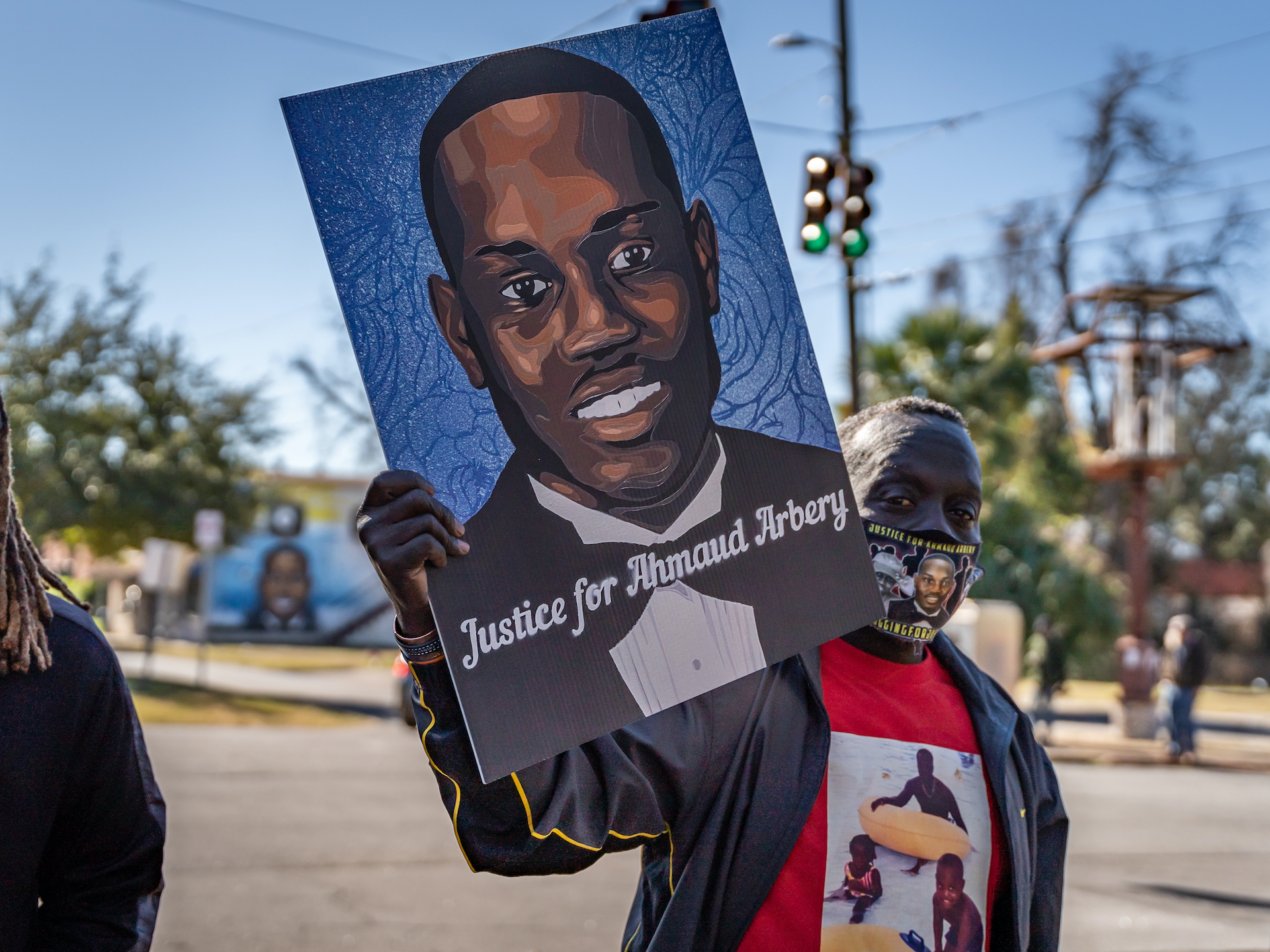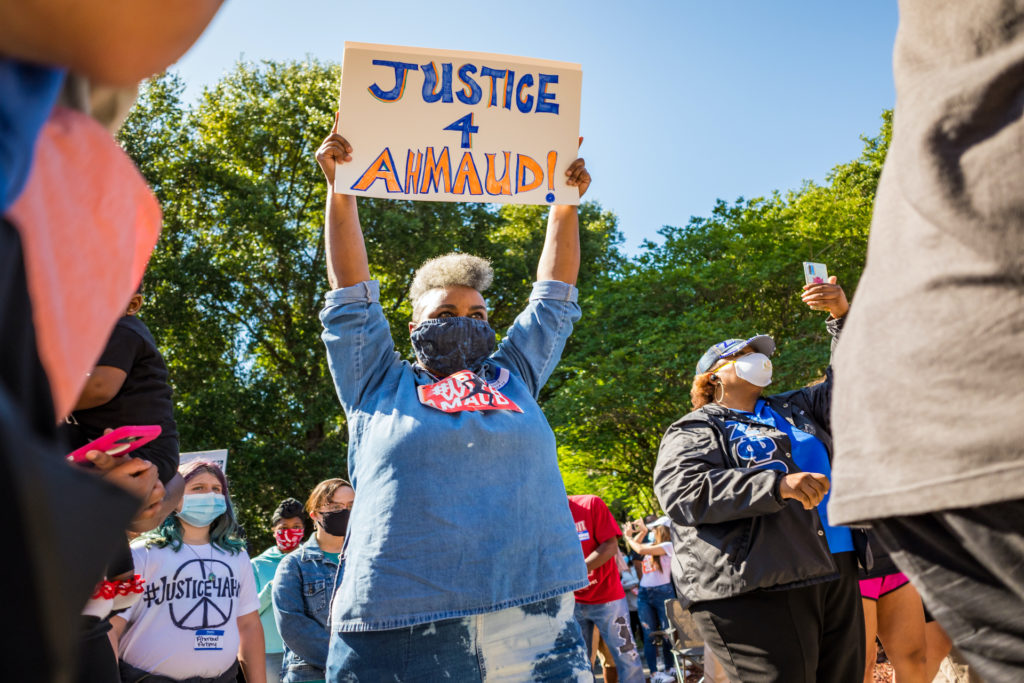The Two Men Who Murdered Ahmaud Arbery Receive Life Sentences
Warning: The following article contains a discussion of gun violence and hate speech.
Travis McMichael and his father Greg McMichael were issued second life sentences by federal Judge Lisa Godbey Wood for the death of Ahmaud Arbery. William “Roddie” Bryan, the man that filmed the entire incident on his cell phone, was issued thirty-five years for his involvement in the hate crime. This marks the first federal sentencing for hate crimes in Georgia.
Earlier this year, it took the federal jury under four hours to determine that the three men involved were guilty of hate crimes against Ahmaud Arbery.
The McMichaels’ initial life sentences were issued by a Georgia Superior Court Judge on state murder charges. Travis McMichael shot and killed 25-year-old Ahmaud Arbery while he was out jogging. McMichael had been known to speak racial slurs and threats. On February 23, 2020, he intentionally murdered Arbery based on the color of his skin, chasing him down the street in a vehicle before emerging and shooting him at point-blank range. Greg McMichael, an ex-police officer, was with Travis when the three men initially attempted to kidnap Arbery. When the attempt failed, Travis shot Arbery in the street. William “Roddie” Bryan filmed the entire incident on his cell phone. When questioned about it, the men claimed they were making a “citizen’s arrest.”
Initially, no charges were brought against the three men. Eventually, the cell phone footage leaked and went viral. Months after the incident and with national pressure increasing, the men were finally charged.
According to NBC News, “The McMichaels and Bryan chased Arbery, 25, through their coastal Georgia neighborhood in trucks. The men, who spotted Arbery running by their homes, cornered him and Travis McMichael fatally shot him with a shotgun. Bryan filmed the fatal encounter on his cellphone.”
Justice did not always prevail in this case. According to The Atlantic, “The three men were not even arrested until May. The district attorney, Jackie Johnson, recused herself from the case because the elder McMichael had been an investigator in her office. Johnson was later indicted for her actions in the Arbery case—allegedly preventing police from arresting the three men for Arbery’s killing.” The delay in arresting Arbery’s killers drew national concern about systemic racism. Concerned citizens began to question whether there would’ve been justice if Ahmaud Arbery’s skin was a different color.
Even more horrifying was the reaction of the responding officers at the scene of the crime. When officers arrived, Arbery was still alive and did not receive immediate attention. The nation was outraged by the way the case was initially handled. Along with George Floyd, Arbery’s name was mentioned at countless protests.
“Life without the possibility of Parole”
— ♛ ♚ (@CrystalUju) January 7, 2022
Ahmad Arbery, Rest Well pic.twitter.com/zvBTSWYBg9
The federal judge that sentenced McMichaels commented on the video that was used in prosecuting the three men: “You killed a man on Feb. 23, 2020. The events depicted in the video, they are seared in the annals of this court and no doubt in your mind forever.”
After the death of Ahmaud Arbery and Rayshard Brooks, Georgia passed a state law against hate crimes in 2020. Georgia was preceded by 46 other states enacting hate crime laws. In a state that is home to one of the most historically brutal hate crimes, the death of Timothy Coggins in 1983, it is surprising that it took Georgia so long to pass hate crime-related laws.
The fact that the deep south has struggled in areas of civil rights is not new information. Rev. Jessee Jackson attended the sentencing and claimed the decision marked a new era for the South. Between his optimistic statement, the national interest surrounding Ahmaud Arbery’s death, and Monday’s historic federal decision, it seems there is hope for change in the future. Watch Jesse Jackson’s reaction to the sentencing of Ahmaud Arbery’s killers below.

Laurie is a writer and editor at Glitter Magazine. She was born and raised in the smallest city in Virginia, where she lives with her two daughters. In her spare time, she makes cruelty-free, vegan lotion and body butter for her small business, Laurie’s Gourmet Lotions.






